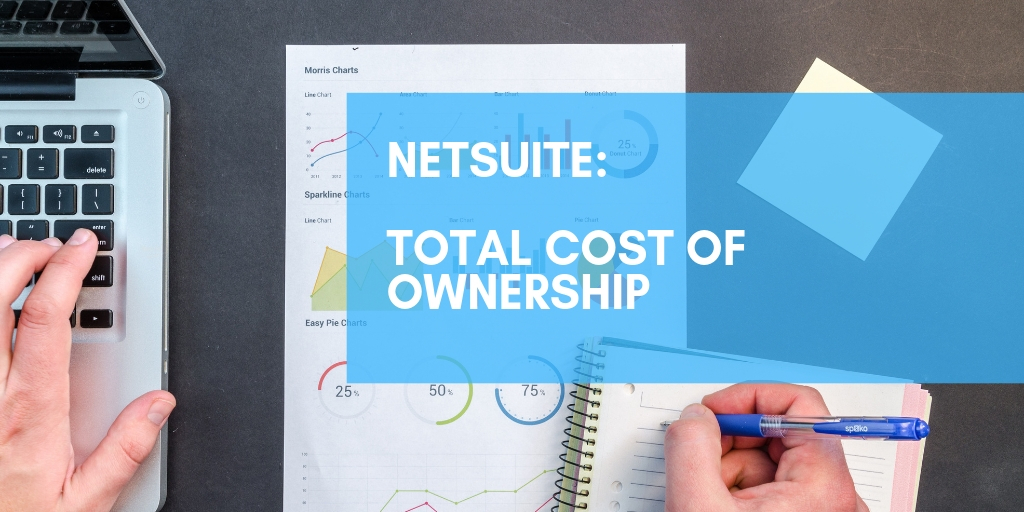Last Modified: October 18th, 2024
6 min read
-
The Cost Elements of Adopting NetSuite and the NetSuite TCO
-
Advisory/ Consultation Cost (Optional)
-
NetSuite Software License (SaaS) Recurring Cost
-
Professional Services costs for Implementation
-
Professional Services cost for Customization
-
Professional Services cost for Integration
-
Internal Cost associated with Staff Involved
-
Professional Services cost for NetSuite Support post-Go-Live
-
A Sample NetSuite TCO
-
Table 1.0 - Cost Elements Table
-
Table 2.0 - A Sample TCO per Year for a QuickStart Implementation
-
Table 3.0 - A Sample TCO per Year for a Traditional Implementation
-
Next Steps:
-
Last Parting thought:

The Cost Elements of Adopting NetSuite and the NetSuite TCO
Businesses often ask the question, What is the NetSuite Cost? In making an informed decision, businesses have to consider the Total Cost of Ownership of the chosen Enterprise Resource Planning (ERP) Software. These include Advisory/ Consultation Costs, Software (SaaS) recurring costs, Professional Services costs for Implementation and any needed Customization and Integration work, Professional Services costs for ongoing support coverage post-Go-Live, and internal costs associated with staff involved in the project.
1. Advisory/ Consultation Cost (Optional)
If you have the need (or want) to evaluate in detail your ERP SaaS options before committing to NetSuite or another option, and explicitly ensure tight alignment to your business needs and drivers, then factor in professional services costs for a week or two in the Evaluation of business requirements and specifications to functionalities of the ERP SaaS options available.
Visit our NetSuite Consulting & Advisory page to learn more.
2. NetSuite Software License (SaaS) Recurring Cost
NetSuite cost for the license is quoted as monthly charges per module (eg. Purchasing, Collections, Sales, etc.) and per number of users, but pre-paid annually. You can prepay for more than a year to obtain discounts. Future versions/ releases are at no extra cost, and upgrades happen seamlessly in the background twice a year (every spring and fall).
IT infrastructure costs / Hardware costs: these mainly apply to on-premise ERP systems/ applications where you have to purchase and operate your own physical servers and networks to run the ERP system and hire staff to operate and maintain such hardware. Since NetSuite is SaaS/ cloud-based, your annual license payments actually cover both software and hardware.
Visit our NetSuite ERP License Pricing page to learn more.
3. Professional Services costs for Implementation
For smaller organizations with less complex needs, a “QuickStart” implementation package may be what is optimal. A fixed engagement for 3 months with a fixed 160 hours of guidance/ consultation from a NetSuite Solution Provider/ NetSuite Partner like Excelym. This is a self-implementation, with heavy guidance from the Partner/ Professional Services firm, but with the bulk of the implementation and data migration performed by the client.
Visit our NetSuite Quickstart Implementation page to learn more. For even smaller businesses with super basic needs, Excelym also offers a twelve-session/six-week engagement to get you all set up and running with NetSuite.
For larger organizations with more complex needs, a traditional implementation engagement is necessary. This typically runs four and a half months with the NetSuite Partner leading and coordinating all the needed tasks from systems configuration, user training, and testing, to historical data migration.
For a traditional implementation engagement, one must also factor in Consultant travel costs. Depending on customer preference this may be one or up to 3 times during the four and a half month project duration. We certainly recommend and require that we be onsite for project kickoff and requirements gathering and business process mapping. From past experience, the mid-point UAT/ User Acceptance Testing and pre-Go Live testing (the other 2 opportunities for onsite client visits), can be just as effectively managed remotely.
Visit our NetSuite Full-Fledged Implementation page to learn more.
4. Professional Services cost for Customization
After NetSuite is implemented or during the implementation process, some organizations have requirements that NetSuite does not provide out of the box. Depending on the scope of such, one must factor in the cost to perform these needed and nice-to-have customization requirements. These are added functionalities that are catered to by programming/coding in the NetSuite platform (SuiteScript, patterned after Java Script) to alter or extend out-of-the-box functionality.
Visit our NetSuite Customization and Integration page to learn more.
5. Professional Services cost for Integration
After NetSuite is implemented, or during implementation, some organizations have requirements that require NetSuite to integrate/ digitally interact with other systems it operates (e.g. Salesforce for its CRM, Shopify for eCommerce store, etc.) and/or other systems of its customers and vendors. For example, it may have the need to electronically interface with its 3PL/ Third Party Logistics partner for the fulfillment of its various sales orders. Or, it may need to integrate with its top volume customers for the receipt of their purchase orders on a daily basis or in real-time. Depending on the scope and complexity of such, one must factor in the cost to perform these needed integration requirements.
Visit our NetSuite Customization and Integration page to learn more. If you’re looking for a robust and scalable NetSuite Connector, our proprietary iPaaS is your choice– www.excelym.io
Internal Cost Associated with Staff Involved
No NetSuite implementation effort would be effective and successful without the active and engaged participation of key stakeholders, mostly from the accounting and finance team. As such, one must factor in the cost of the time involvement of these resources throughout the different phases of the implementation project, from requirements gathering and validation, through testing, and actual historical data migration in preparation for go-live.
Professional Services Cost for NetSuite Support post-Go-Live
Once live with NetSuite, organizations will need support as they adapt to and get used to their new system for finance, accounting, and other operational activities. Through time, the level of support needed drops. As such, one must factor in the costs of support, but with a heavier allocation for the first 6 to 12 months post-go-live, versus thereafter.
Read our blog on Professional Services Cost for NetSuite Support Post Go-Live
A Sample NetSuite TCO
The table below is a NOT definitive NetSuite Cost structure, but we wanted to give you a good basis, a good foundational knowledge from which you can evolve on your own to come up with something close to what your exact scenario looks like.
Note: These sample costs are historical averages from projects we’ve done in the past 9 years, mid-sized companies in the USA, mostly manufacturing or SaaS/Software/Data/Tech companies with annual revenues of at least $12 million and employee headcount of 50 and upwards.
| Table 1.0 – NetSuite Professional Services Cost | ||
|---|---|---|
| Cost Element | Service Package | Average Cost (USD) |
1. Advisory/ Consultation Cost (Optional) | Standard Package | $6,000 |
2.NetSuite Software (SaaS) Recurring Cost | Standard Package | $40,000 |
3.Professional Services costs for Implementation | Quickstart NetSuite Implementation | &15,000 |
| Traditional NetSuite Implementation | &65,000 | |
| Onsite visit expense reimbursement (this cost covers up to two consultants) | &2,500 | |
4.Professional Services costs for Customization | Typically varies depending on the project scope & complexity | TBD |
5.Professional Services costs for Integration | US$ TBD depending on scope & complexity | TBD |
6.Internal Cost Associated with Staff Involved | Typically varies depending on the project scope & complexity & company size | TBD |
7.Professional Services costs for NetSuite Support post Go-Live | For the first 6 months | $15,000 |
| For every 6 months thereafter and significantly declines after year #2 if still needed at all | $6,000 | |
| Table 2.0 – A Sample TCO per Year for a QuickStart Implementation (Note: Assuming no advisory service is needed) | ||
|---|---|---|
| Period | Cost Element | Average Cost (USD) |
YEAR 1 | NetSuite Software (SaaS); recurring cost | $40,000 |
| Professional services costs for NetSuite implementation | $15,000 | |
| Professional services cost for NetSuite Support post Go-Live (6 months) | $15,000 | |
| YEAR 2 | NetSuite Software (SaaS) Recurring Cost | $40,000 |
| Professional Services cost for NetSuite Support post go-live ($6K per 6 months) | $12,000 | |
| YEAR 3 (onwards) | NetSuite Software (SaaS); recurring cost | $40,000 |
| TOTAL for the first 3 years: | US$ 162,000 | |
| Table 3.0 – A Sample TCO per Year for a Traditional Implementation (Note: Assuming a traditional implementation package is chosen) | ||
|---|---|---|
YEAR 1 | NetSuite Software (SaaS); recurring cost | $40,000 |
| Professional services costs for NetSuite implementation | $65,000 | |
| One on-site visit for project kickoff (whenever required by client) | $2,500 | |
| Professional services cost for NetSuite Support post Go-Live (6 months) | $15,000 | |
| YEAR 2 | NetSuite Software (SaaS) Recurring Cost | $40,000 |
| Professional Services cost for NetSuite Support post go-live ($6K per 6 months) | $12,000 | |
| YEAR 3 (onwards) | NetSuite Software (SaaS); recurring cost | $40,000 |
| TOTAL for the first 3 years: | US$ 214,500 | |
Next Steps:
Visit the following pages to learn more about the associated cost of owning a NetSuite license.
Read this before you start to implement NetSuite:
Opting for the Services of NetSuite Solutions Provider Partners will increase the initial cost of implementing NetSuite but when it comes to taking into account the Total Cost of Ownership, having a partner that has expertise in Cloud-based ERPs like Excelym can have numerous savings in the long run. Excelym can increase the success of NetSuite Implementations, lesser NetSuite costs, and ensure the return on investment.
If you want to learn more about how we can help you with your NetSuite needs, please reach out to us at info@excelym.com or click here to book a no-obligation, free-consultation with one of our NetSuite Consultants.
Thank you for reading!
Serge is a Managing Partner and the head of sales and business development.
Published on: October 4, 2018
